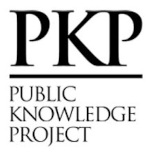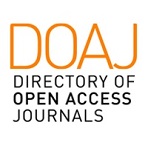Second Nature, uma investigação de design conduzida pela prática sobre o consumismo respondendo a hábitos domésticos sustentáveis
DOI:
https://doi.org/10.29147/datjournal.v8i1.695Palavras-chave:
Mudanças Climáticas e Hábitos de Consumo, Pesquisa em Design, Design gráfico, Design sustentávelResumo
Este artigo discute um projeto de design gráfico sobre hábitos insustentáveis em casa e seus efeitos nas mudanças climáticas. O artigo reflete sobre a pesquisa de design conduzida pela prática, perguntando: Como o design gráfico pode ser usado para provocar jovens adultos a fazer mudanças positivas em relação aos seus hábitos de consumo insustentáveis em suas casas? O projeto de design intitulado: Second Nature - é uma campanha de conscientização que combina a paixão do pesquisador pela sustentabilidade ambiental e a prática criativa como forma de expressão por meio de convenções de design gráfico. O projeto respondeu à questão de investigação com uma campanha de comunicação, composta por uma série de artefactos de design, incluindo uma série de cartazes, um conjunto de zines, presença nas redes sociais e um website. Os artefactos permitem ao público refletir sobre o impacto negativo que os seus hábitos causam, proporcionando formas de fazer pequenas mudanças para um estilo de vida mais sustentável. Na condução do estudo, a investigação reflexiva e heurística foi utilizada como uma abordagem para a resolução de problemas. Na investigação, o projeto empregou métodos como revisão contextual do conhecimento, mapeamento mental, esboços e maquetes para idealizar, refletir e testar. O artigo adota um comentário sobre a prática e evidencia as decisões de design para o contexto, incluindo como os artefatos se envolvem com o público. A pesquisa contribui para os discursos atuais sobre as mudanças climáticas em um mundo dominado pelo consumismo, propondo e desvendando como uma campanha de conscientização pode ser usada como uma ferramenta para combater o esgotamento de nosso lar maior, a terra.
Downloads
Referências
Ardern, S. & Mortensen Steagall, M. (2023) Awakening takes place within: a practice-led research through texture and embodiment. Design, Art and Technology Journal, Vol. 8 No. 1, forthcoming.
Barr, S., Gilg, A. W., & Ford, N. (2005). The household energy gap: examining the divide between habitual-and purchase-related conservation behaviours. Energy policy, 33(11), 1425-1444.
Brown, R. & Mortensen Steagall, M. (2023). Painting the Kitchen Tables: Exploring women's domestic creative spaces through publication design. Design, Art and Technology Journal, Vol. 8 No. 1, forthcoming.
Cherry, K. (2022). Effects of the Color Purple On Mood and Behavior. Verywell Mind.
https://www.verywellmind.com/the-color-psychology-of-purple-2795820
Duignan, B. (2022, April 8). consumerism. Encyclopedia Britannica.
https://www.britannica.com/topic/consumerism
Gao, B., Li, Z., & Yan, J. (2022). The influence of social commerce on eco‐friendly consumer behavior: Technological and social roles. Journal of Consumer Behaviour, 21(4), 653-672.
Gatt, I. J., & Refalo, P. (2021). Life cycle assessment of recyclable, reusable and dematerialised plastic cosmetic packages. IOP Conference Series: Materials Science & Engineering. https://doi.org/10.1088/1757-899X/1196/1/012022
Gilal, F. G., Chandani, K., Gilal, R. G., Gilal, N. G., Gilal, W. G., & Channa, N. A. (2019). Towards a new model for green consumer behaviour: A self‐determination theory perspective. Sustainable Development. https://doi-org/10.1002/sd.2021
Falconer, T. & Mortensen Steagall, M. (2023). Grounding: A Practice-led Graphic Exploration of Ecofeminism, Wellbeing and Ecological Consciousness. Design, Art and Technology Journal, Vol. 8 No. 1, forthcoming.
Ferrera, C & De Feo, G. (2021). Environmental Assessment of the Recycled Paper Production: The Effects of Energy Supply Source. Sustainability Volume: 13 Issue 9
https://doi.org/10.3390/su13094841
Labrecque, L.I & Milne, G.R. (2012). Exciting red and competent blue: the importance of color in marketing. Journal of the Academy of Marketing Science.
https://doi.org/10.1007/s11747-010-0245-y
Lenze, J. S. (1991). Serif vs. san serif type fonts: A comparison based on reader comprehension. Investigating visual literacy, 93-98.
https://files.eric.ed.gov/fulltext/ED352051.pdf#page=108
Lewis, S. & Mortensen Steagall, M. (2023). Less than 5mm — The unseen threat: An investigation into how micro-plastics effect coral reefs. Design, Art and Technology Journal, Vol. 8 No. 1, forthcoming.
Li, Q. & Mortensen Steagall, M. (2023). Memories from COVID-19: A practice-led research about the lockdown through the perspective of a Chinese student. Design, Art and Technology Journal, Vol. 8 No. 1, forthcoming.
Lum, K. & Mortensen Steagall, M. (2023). Breakthrough: An illustrated autoethnographic narrative into professional identity and storytelling. Design, Art and Technology Journal, Vol. 8 No. 1, forthcoming.
Lupton, E., & Abbott Miller, J. (1993). The Bathroom, the Kitchen, and the Aesthetics of Waste: A Process of Elimination. Princeton Architectural Press.
Michie, K., & Mortensen Steagall, M. (2021). From Shadow: a practice-led design research on academic anxiety. DAT Journal, 6(1), 339–354. https://doi.org/10.29147/dat.v6i1.345
Mortensen Steagall, M. (2022). Immersive Photography: a review of the contextual knowledge of a PhD practice-led research project. Revista GEMInIS, 13(2), 73-80. doi:10.53450/2179-1465.rg.2022v13i2p73-80
Mortensen Steagall, M. (2021). Reflections on digital image and contemporaneity. Revista GEMInIS, 12(2), 241-250. doi:10.53450/2179-1465.RG.2021v12i2p241-250
Mortensen Steagall, M. (2020). Conceptual images in advertising: Premises of the advertising image powered by technology and interactivity. Convergencias: Revista de Investigacao e Ensino das Artes, XIII (26). http://hdl.handle.net/10400.11/7473
Mortensen Steagall, M., & Ings, W. (2018). Practice-led doctoral research and the nature of immersive methods / Pesquisa de doutorado practice-led e a natureza dos métodos imersivos. DAT Journal, 3(2), 392-423. doi:10.29147/dat.v3i2.98
Mortensen Steagall, M. (2019). The process of immersive photography: Beyond the cognitive and the physical (Doctoral dissertation, Auckland University of Technology).
Mpofu, N., & Mortensen Steagall, M. (2021). Uhlola kweNdebele: Reconnecting Zimbabwe Through Typographic Design. 8TRANSVERSO, ANO 9, N. 10, AGOSTO 2021ISSN: 2236-4129, 9(10), 8-16.
Moustakas, C. (1961). Loneliness. New York: Prentiss Hall
Tajali, A, B., Sanatjoo, A., Behzadi, H., & Jamali, H. R. (2021). Use of mind mapping in search process to clarify information needs and improve search satisfaction. Journal of Information Science. https://doi.org/10.1177/01655515211058041
Van Vliet, D., & Mortensen Steagall, M., (2020). Duregraph: a study of duration in the post photographic image. DAT Journal, 5(3), 250–262. https://doi.org/10.29147/dat.v5i3.234
Ventling, F. D. (2018). Heuristics: A framework to clarify practice-led research. DAT Journal, 3(2), 122–156. https://doi.org/10.29147/dat.v3i2.88
Verplanken, B. (2017). Promoting Sustainability: Towards a Segmentation Model of Individual and Household Behaviour and Behaviour Change. Sustainable Development. https://doi.org/10.1002/sd.1694
Mendelová, D. (2018). The Birth of American Advertising. Communication Today. https://tinyurl.com/ymfj4k7w
Paulovics, A. (2021). Recombination of product properties for increased demand for sustainable packaging under Generation Z consumers. In: Innovative Solutions for Sustainability.
https://doi.org/10.29180/9786156342201_8
Pangram Pangram Foundry. (2018). Agrandir Collection.
https://pangrampangram.com/products/agrandir
Polanyi, M. (1967). The creative imagination. Triquarterly, 8, 111.
Schön, D. (1983). The Reflective Practitioner. London: Temple Smith Aldershot: Ashgate).
Shan, K. & Mortensen Steagall, M. (2023). Forgotten: an autoethnographic exploration of belonging through Graphic Design. Design, Art and Technology Journal, Vol. 8 No. 1, forthcoming.
Wiederhold, M., Martinez, L. F. (2017). Ethical consumer behaviour in Germany: The attitude-behaviour gap in the green apparel industry. International Journal of Consumer Studies. https://doi.org/10.1111/ijcs.12435
Whiting, P. G. C (2011). If Designers are Problem Solvers: What is a “Real” Problem, A Problem for Whom? Design Principles & Practice: An International Journal.
https://doi.org/10.18848/1833-1874/CGP/v05i03/38071
Won, S. (2021). Conveying Colour Research to Design Practice: Design and Evaluation of a Web-based Colour Tool. Color Research & Application. https://doi.org/10.1002/col.22580
Downloads
Publicado
Como Citar
Edição
Seção
Licença
Copyright (c) 2023 DAT Journal

Este trabalho está licenciado sob uma licença Creative Commons Attribution 4.0 International License.


























